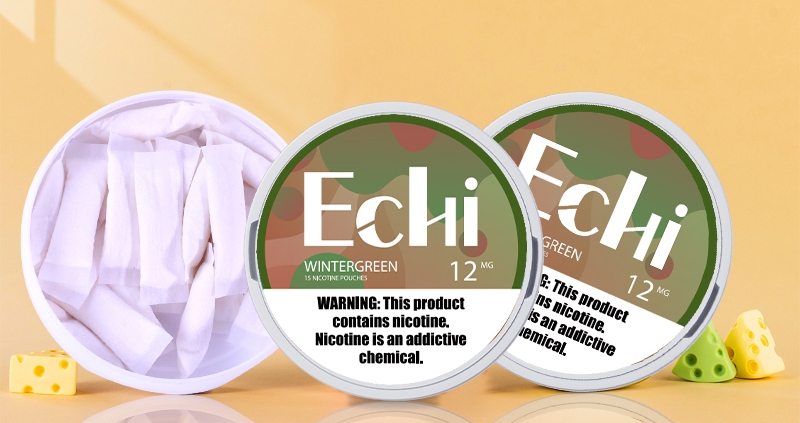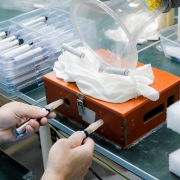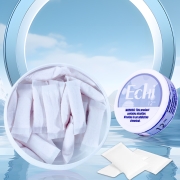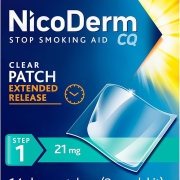Navigating the Labyrinth of Nicotine Manufacturing: Unveiling Pouches, Gums, Patches, and Bitartrate
Nicotine-based products are evolving rapidly, offering consumers a diverse range of smokeless and user-friendly options. From fast-acting pouches to slow-release patches, understanding the manufacturing journey and ingredient science behind these products can empower businesses and consumers alike.
In this article, we’ll explore how nicotine is manufactured, the difference between liquid nicotine and nicotine bitartrate, and how these substances shape today’s market-ready products.
🔬 Technical Term Explanation: What Are Liquid Nicotine & Nicotine Bitartrate?
Understanding these essential ingredients is key for manufacturers, brands, and retailers navigating the nicotine supply chain.
Liquid Nicotine
A concentrated extract from tobacco leaves, liquid nicotine is used in various delivery formats such as e-cigarettes, gums, and patches.
✅ Fast-acting
⚠️ Requires careful handling due to toxicity
Trusted Liquid Nicotine Wholesalers must adhere to strict safety and storage regulations.
Nicotine Bitartrate
A water-soluble, stabilized form of nicotine, preferred for its safety and versatility in nicotine replacement therapies.
✅ High thermal stability
✅ Longer shelf life
Popular among Nicotine Bitartrate Manufacturers for applications like gums and patches.
🏭 Manufacturing Process Breakdown: From Tobacco Leaf to Pouch
Let’s take nicotine pouches as a representative example to understand how the manufacturing process works:
-
Ingredient Blending
Nicotine powder is combined with:-
Plant-based fibers
-
Food-safe flavorings (mint, citrus, etc.)
-
Stabilizers and binders
-
-
Pouch Formation
Using an automated Nicotine Pouches Manufacturing Machine, the mixture is packed into biodegradable, smokeless pouches. -
Sealing & Packaging
Each pouch is sealed for hygiene and quality control, then sorted and packaged for distribution.
⚖️ Pros and Cons: Comparing Liquid Nicotine vs. Nicotine Bitartrate
| Feature | Liquid Nicotine | Nicotine Bitartrate |
|---|---|---|
| Absorption Speed | ✅ Fast-acting | ⏳ Gradual release |
| Handling Safety | ⚠️ Volatile, requires care | ✅ Stable and easy to handle |
| Best Use | Vapes, fast-acting gums | Patches, long-release formulations |
| Manufacturing Preference | Requires expert supervision | More forgiving during production |
Choose the right formula based on your product goals and consumer needs.
🎯 Market Applications & Target Segments
Nicotine products are designed to serve specific consumer needs and use cases:
👤 Smokers Seeking Cessation
Nicotine gums and patches are ideal for those trying to quit smoking gradually.
🚭 Discreet Use in Restricted Spaces
Nicotine pouches are popular among users who need a smokeless option in offices, flights, or public areas.
💊 Health-Conscious Consumers
Nicotine bitartrate is favored in pharmaceutical-grade products for its reliability and safety.
❓ FAQs: Understanding Nicotine Production & Use
1. How Is Nicotine Manufactured?
It’s extracted from tobacco leaves and purified to produce either liquid nicotine or nicotine bitartrate depending on the application.
2. Who Buys From Liquid Nicotine & Bitartrate Manufacturers?
Pharmaceutical companies, Nicotine Gum Manufacturers, e-cigarette brands, and Nicotine Pouch Producers.
3. Is Pouch Manufacturing Complex?
While not overly complex, the process requires specialized machinery, precise formulation, and quality control systems.
🚀 Conclusion: Your Guide to the Nicotine Ecosystem
From tobacco extraction to finished product, nicotine manufacturing is a science-backed and precision-driven process. Whether you’re exploring fast-release gums, discreet pouches, or therapeutic patches, understanding each component—from liquid nicotine to nicotine bitartrate—can set your product apart.
Ready to explore more?
🔗 Visit Snuffactory’s Producer Directory
📬 Get in touch for product inquiries or B2B collaborations










Leave a Reply
Want to join the discussion?Feel free to contribute!